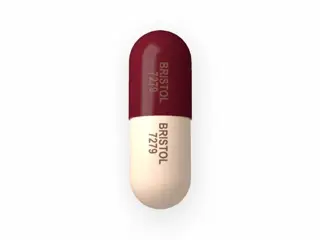Antibacterial
Effective antibacterial products to protect you and your family from harmful bacteria. Shop trusted medicines and hygiene solutions for fast relief and prevention. Safe, reliable, and ready to support your health.
Antibacterial medications play a crucial role in treating infections caused by bacteria. They help prevent the growth of harmful bacteria and support the immune system in fighting infections. This category includes various drugs with different mechanisms of action and spectrums of activity. Below is a review of some popular antibacterial pills available in this category.
Aralen (chloroquine) is primarily known as an antimalarial, but it shows antibacterial properties against certain types of bacteria. It is sometimes used off-label for infections resistant to standard antibiotics. Aralen has a unique mechanism that interferes with bacterial metabolism. It is not typically a first-line antibacterial but can be effective in specific cases.
Asacol (mesalamine) is mostly used to treat inflammatory bowel diseases like ulcerative colitis. While not a traditional antibacterial, it exerts some antimicrobial effects within the gut. Asacol helps reduce gut inflammation, which can reduce secondary bacterial infections. This medication is beneficial in managing symptoms and maintaining remission rather than direct bacterial eradication.
Bactrim is a widely used combination of sulfamethoxazole and trimethoprim. It is effective against a broad range of bacteria including urinary tract infections, respiratory infections, and some gastrointestinal infections. Bactrim works by inhibiting the synthesis of folic acid, which bacteria need to survive. It is considered a reliable and affordable antibacterial option with a good safety profile. However, allergic reactions and resistance can limit its use.
Ceftin (cefuroxime axetil) is a cephalosporin antibiotic. It acts by destroying the bacterial cell wall, leading to bacterial death. Ceftin is often prescribed for ear infections, bronchitis, and skin infections. Its broad-spectrum activity makes it suitable for both gram-positive and gram-negative bacteria. Side effects are usually mild but may include gastrointestinal discomfort and allergic reactions.
Furadantin (nitrofurantoin) is predominantly used for urinary tract infections. It works by damaging bacterial DNA, which prevents growth and replication. Furadantin is highly effective for uncomplicated urinary infections but should be avoided in patients with poor kidney function. It concentrates well in the urine, offering targeted antibacterial action.
Rulide (roxithromycin) is a macrolide antibiotic. It inhibits bacterial protein synthesis, thereby stopping bacterial growth. Rulide is effective against respiratory tract infections, skin infections, and some sexually transmitted infections. It offers a good alternative for patients allergic to penicillin. Common side effects include nausea and gastrointestinal upset.
Suprax (cefixime) is an oral third-generation cephalosporin. It is prescribed for infections such as gonorrhea, tonsillitis, and urinary tract infections. Suprax works by disrupting the bacterial cell wall. It is effective against various gram-negative bacteria. Suprax is generally well tolerated but may cause mild digestive issues.
Tinidazole is an antiprotozoal and antibacterial agent. It targets anaerobic bacteria and protozoa by damaging their DNA. Tinidazole is commonly used for bacterial vaginosis, giardiasis, and amebiasis. The drug provides short-course treatment with high efficacy. Users may experience metallic taste and mild stomach discomfort.
Trimox is a brand of amoxicillin, a penicillin-type antibiotic. It kills bacteria by inhibiting their cell wall synthesis. Trimox is effective against respiratory, urinary, and skin infections. It is widely used due to its safety and effectiveness. Resistance is a concern for some bacterial strains. Side effects include allergic reactions and digestive upset.
Vibramycin (doxycycline) is a tetracycline antibiotic. It inhibits bacterial protein synthesis, preventing bacterial growth. Vibramycin treats respiratory infections, acne, Lyme disease, and some sexually transmitted infections. It offers broad-spectrum coverage. Side effects can include photosensitivity and gastrointestinal discomfort.
In summary, antibacterial pills vary widely in their use, spectrum, and side effects. Choosing the right antibacterial depends on the infection type, bacterial sensitivity, and patient history. Monitoring for resistance and side effects is important. Each of the medications discussed has proven effective for specific bacterial infections. Consulting a healthcare provider is essential before starting any antibacterial treatment.









